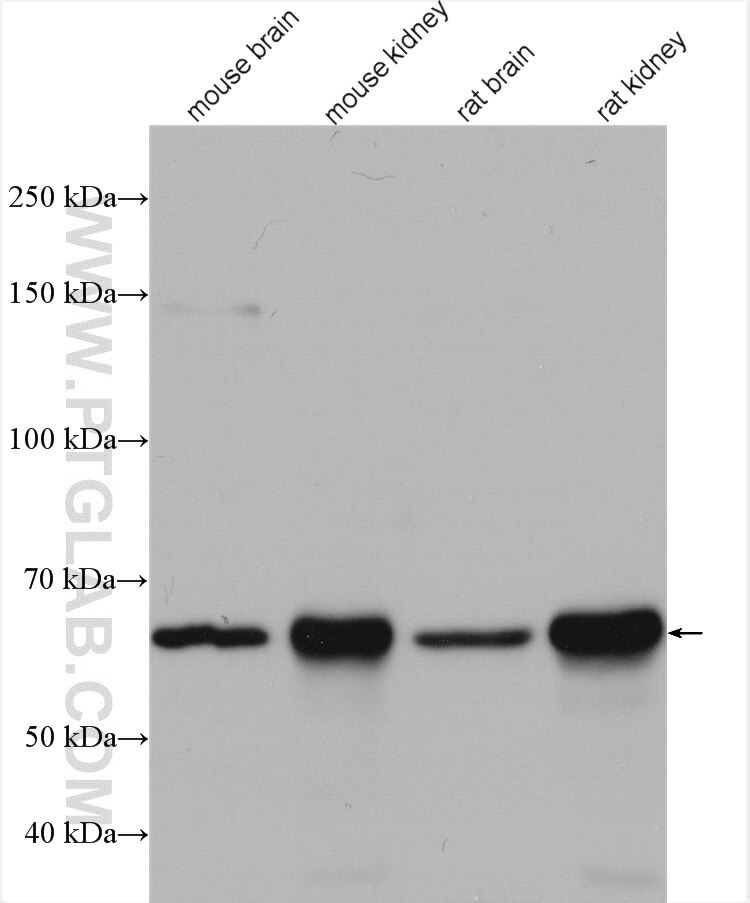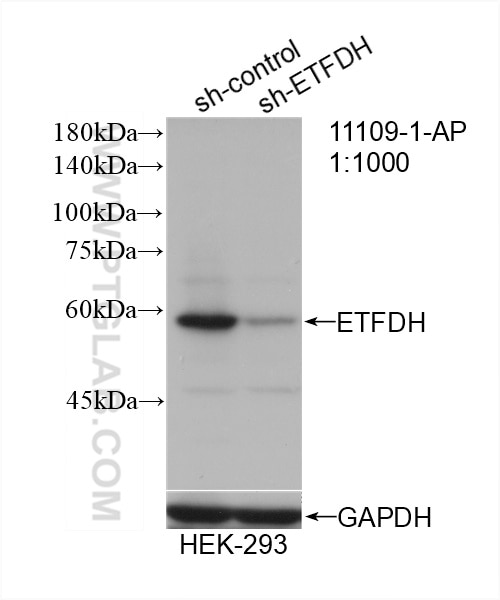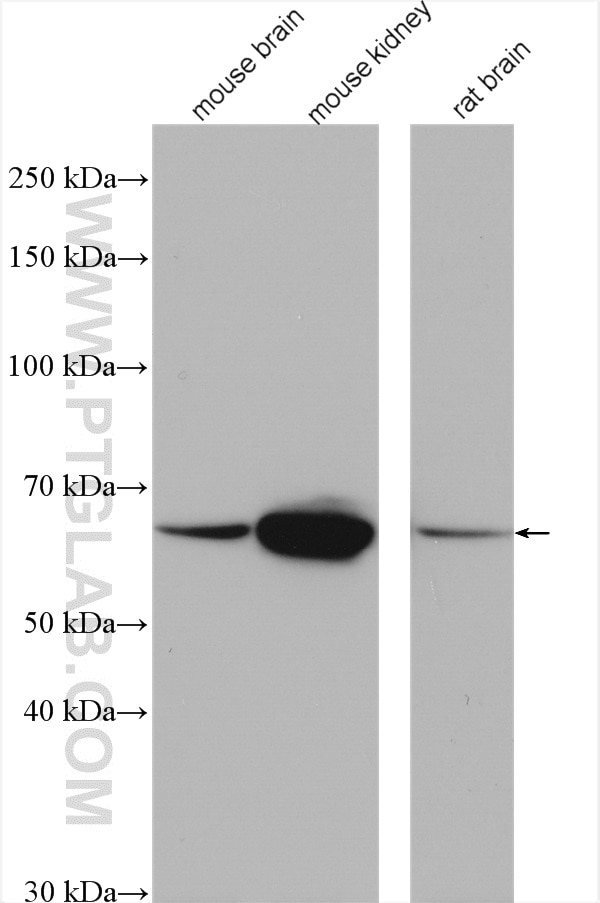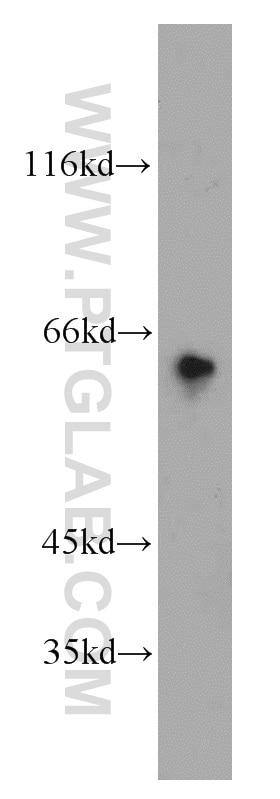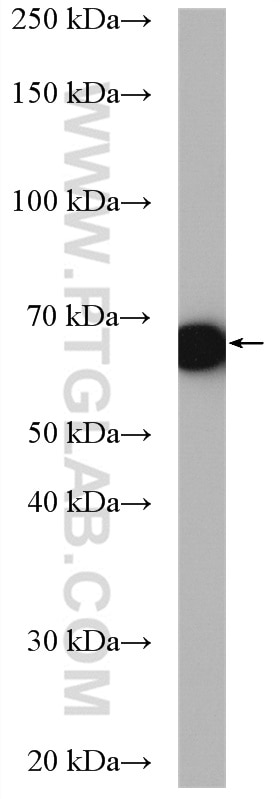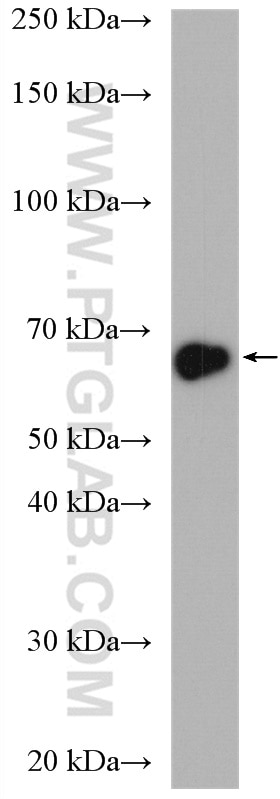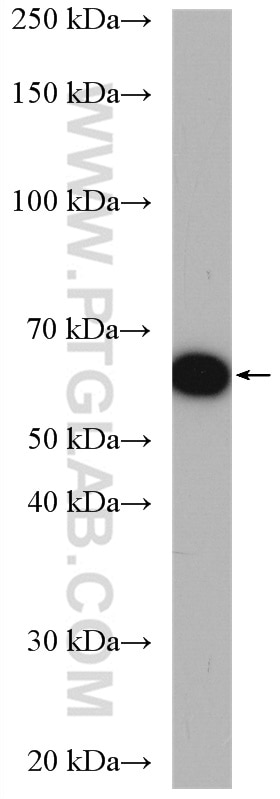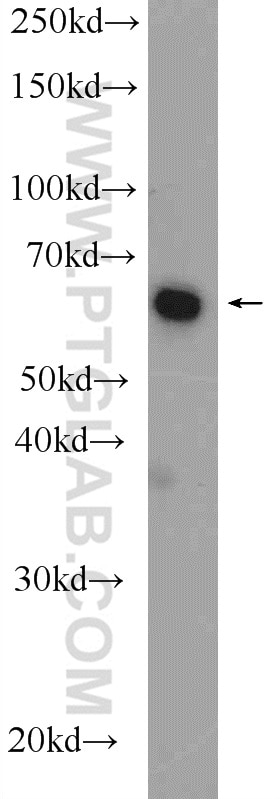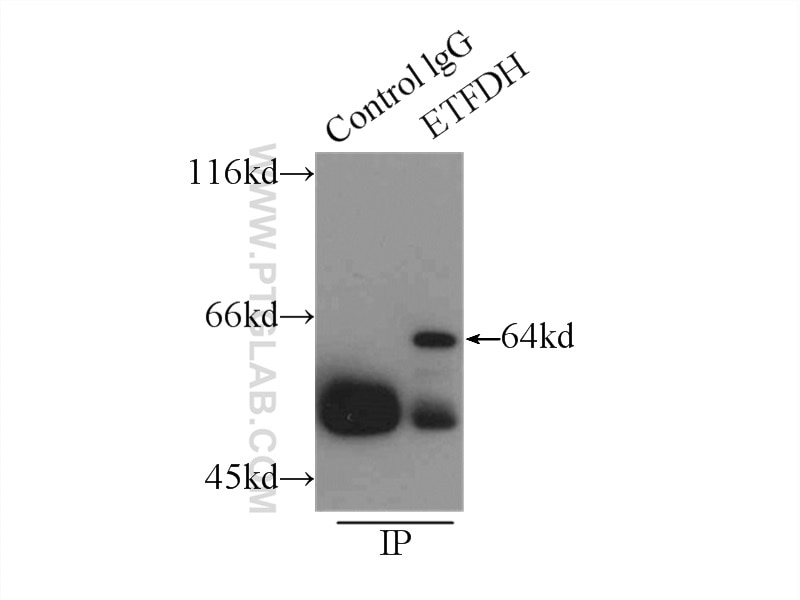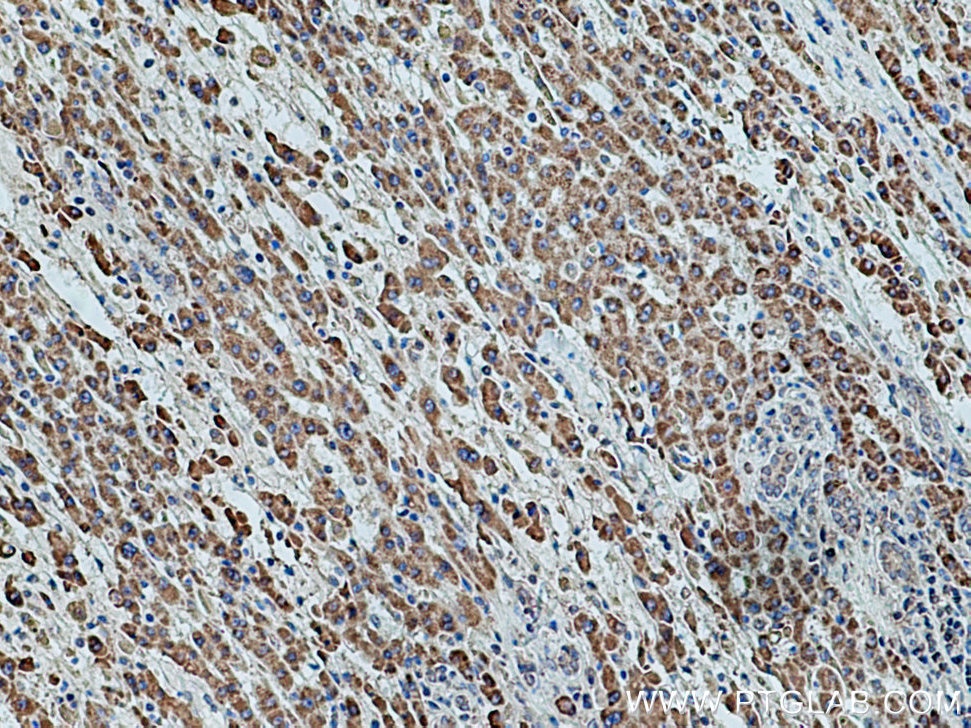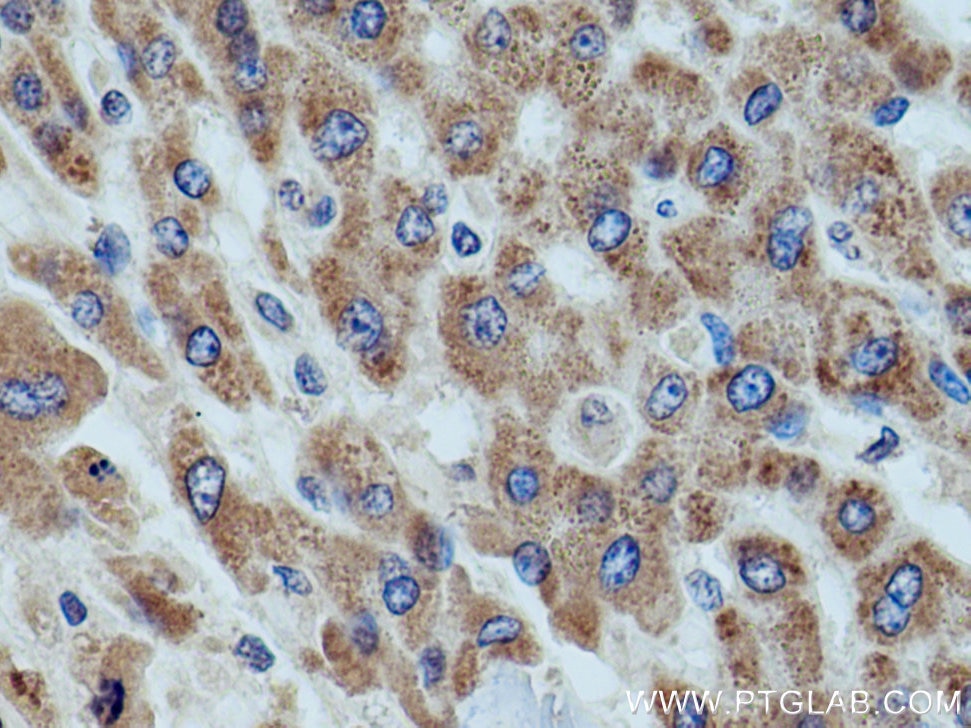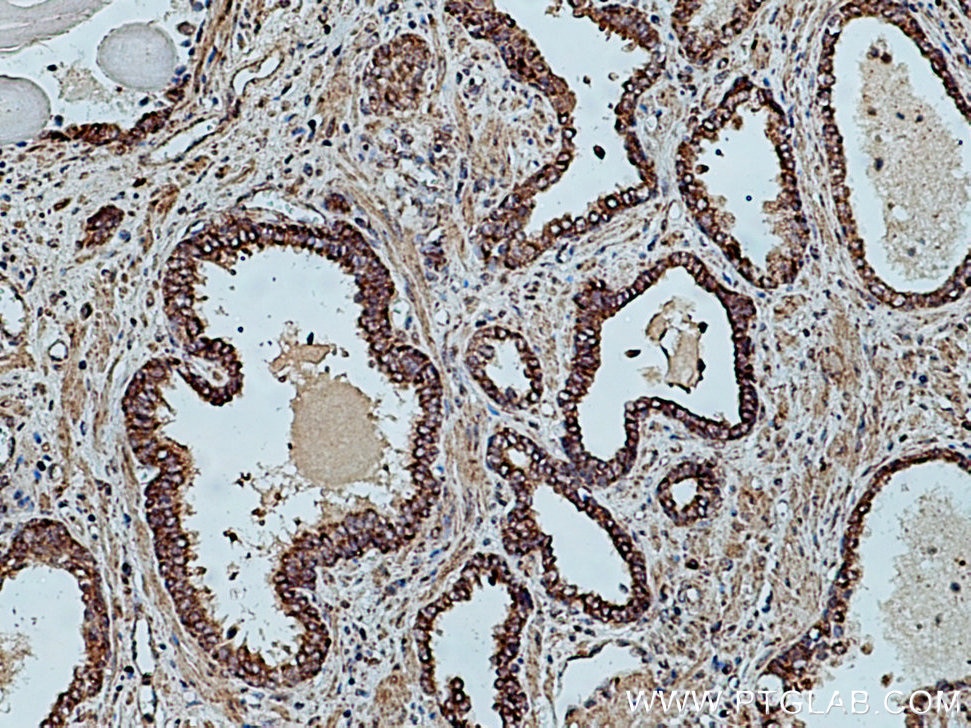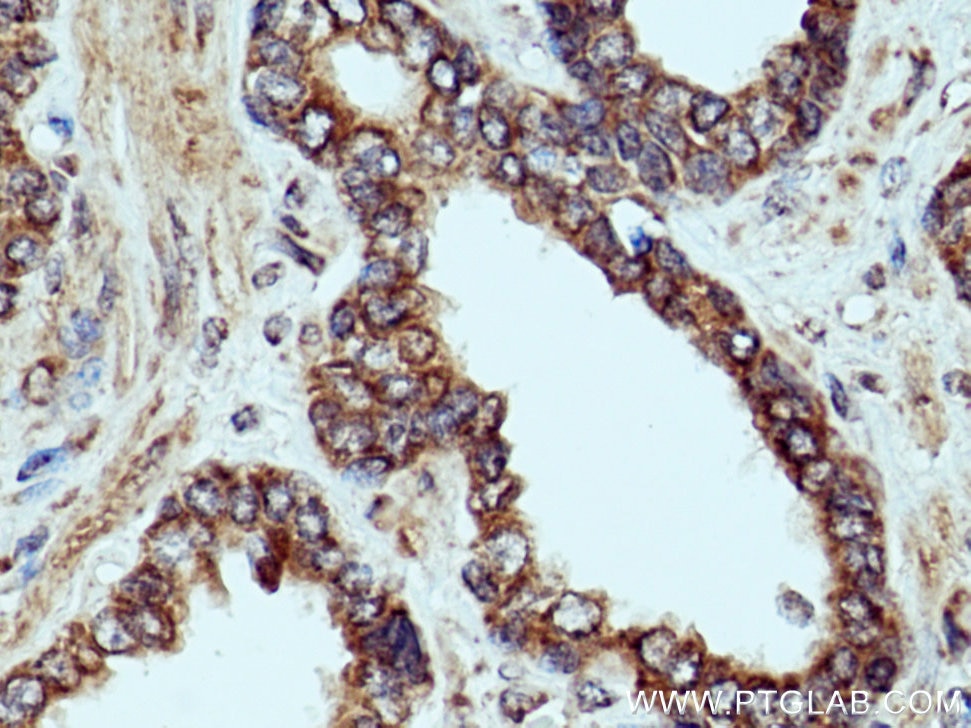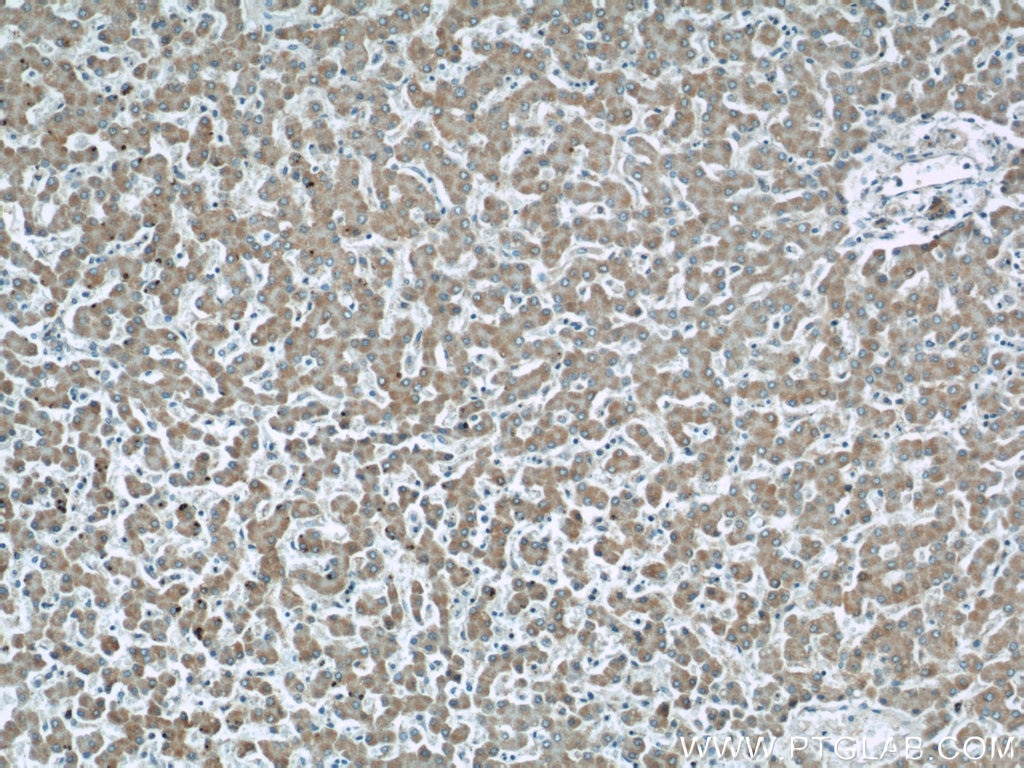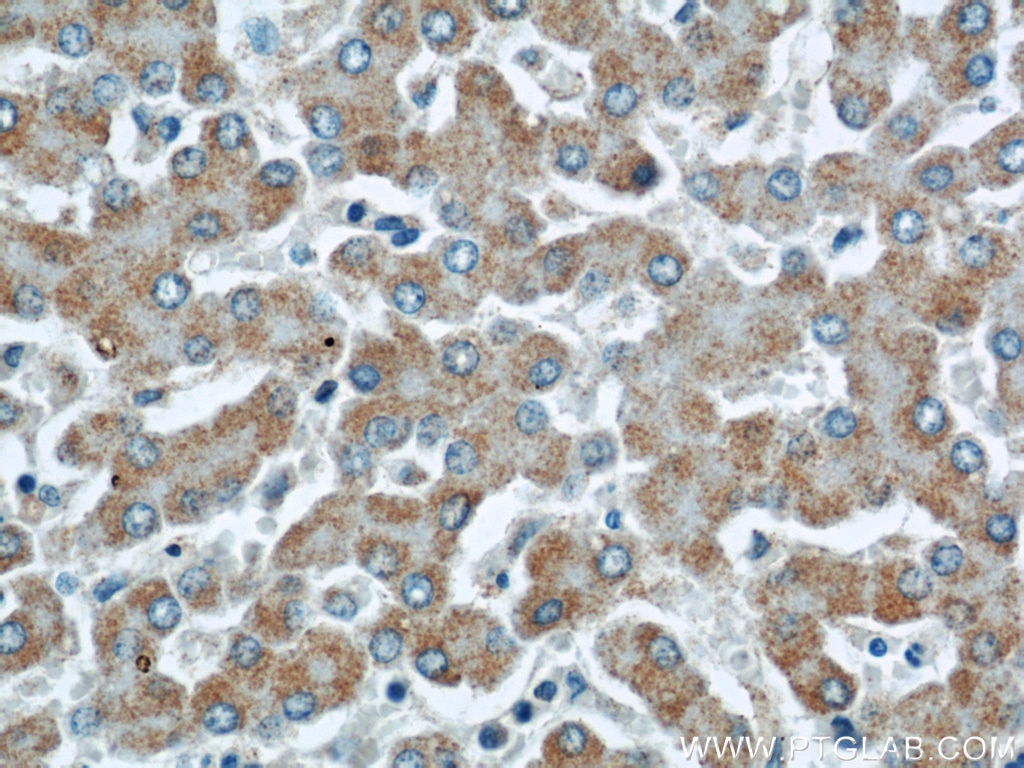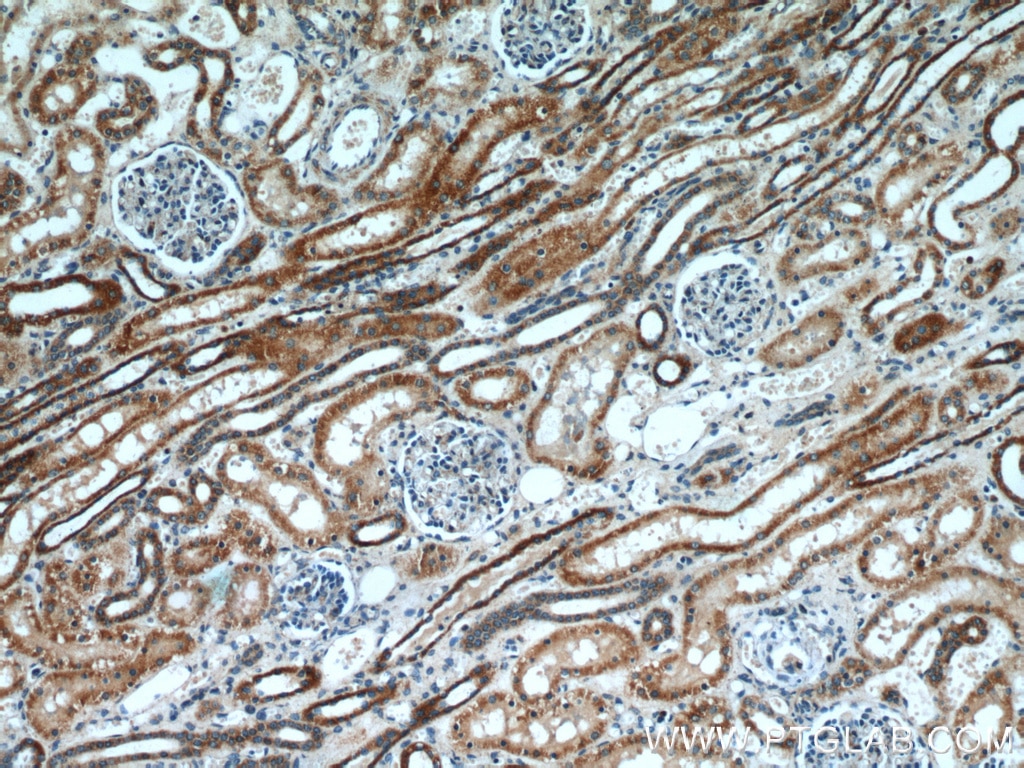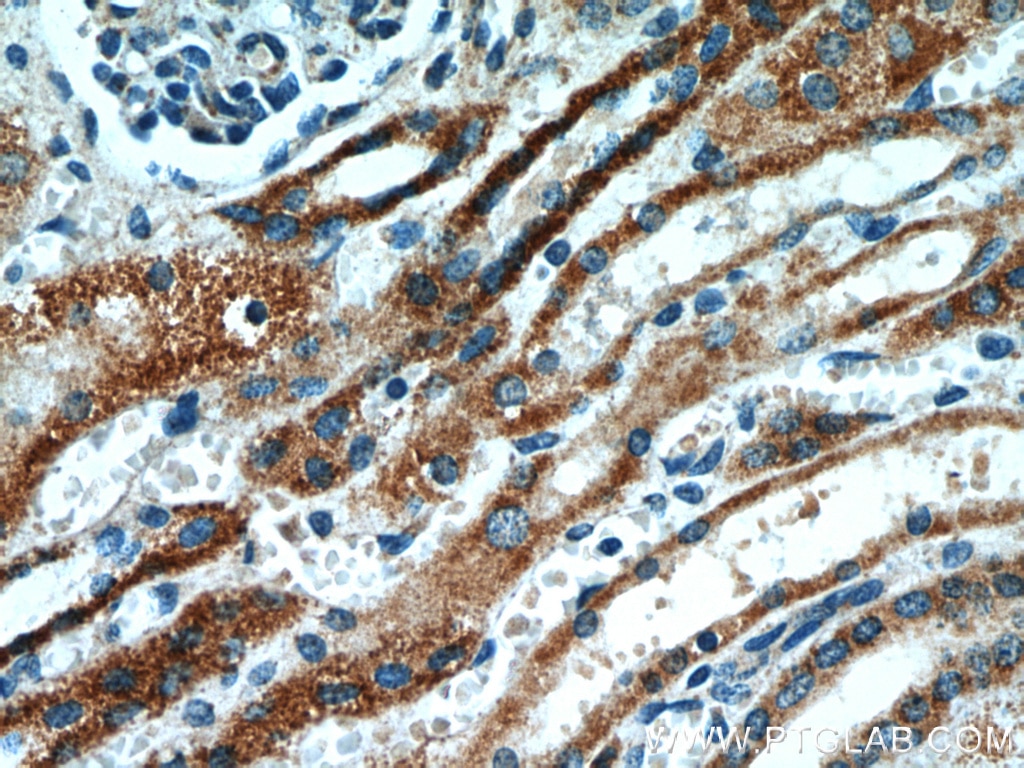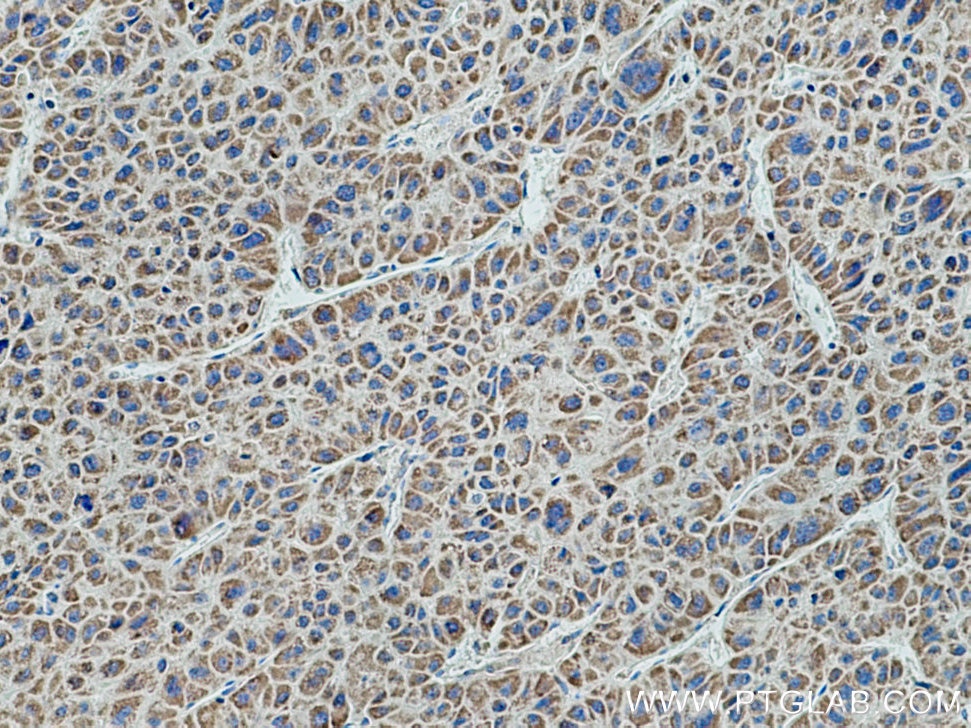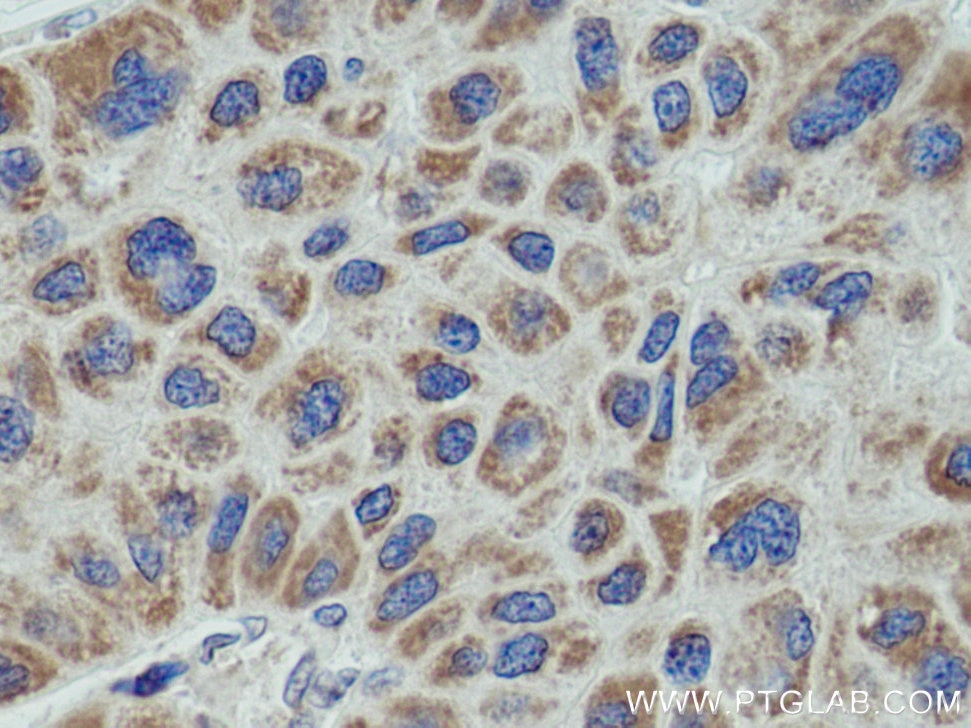Tested Applications
| Positive WB detected in | mouse brain tissue, HEK-293 cells, rat brain tissue, mouse kidney tissue, mouse skeletal muscle tissue, rat kidney tissue |
| Positive IP detected in | mouse brain tissue |
| Positive IHC detected in | human liver cancer tissue, human liver tissue, human kidney tissue, human prostate cancer tissue Note: suggested antigen retrieval with TE buffer pH 9.0; (*) Alternatively, antigen retrieval may be performed with citrate buffer pH 6.0 |
Recommended dilution
| Application | Dilution |
|---|---|
| Western Blot (WB) | WB : 1:1000-1:6000 |
| Immunoprecipitation (IP) | IP : 0.5-4.0 ug for 1.0-3.0 mg of total protein lysate |
| Immunohistochemistry (IHC) | IHC : 1:50-1:500 |
| It is recommended that this reagent should be titrated in each testing system to obtain optimal results. | |
| Sample-dependent, Check data in validation data gallery. | |
Published Applications
| WB | See 10 publications below |
| IHC | See 1 publications below |
| IF | See 2 publications below |
| CoIP | See 1 publications below |
Product Information
11109-1-AP targets ETFDH in WB, IHC, IF, IP, CoIP, ELISA applications and shows reactivity with human, mouse, rat samples.
| Tested Reactivity | human, mouse, rat |
| Cited Reactivity | human, mouse |
| Host / Isotype | Rabbit / IgG |
| Class | Polyclonal |
| Type | Antibody |
| Immunogen |
CatNo: Ag1568 Product name: Recombinant human ETFDH protein Source: e coli.-derived, PGEX-4T Tag: GST Domain: 269-617 aa of BC011890 Sequence: QTYGIGLKELWVIDEKNWKPGRVDHTVGWPLDRHTYGGSFLYHLNEGEPLVALGLVVGLDYQNPYLSPFREFQRWKHHPSIRPTLEGGKRIAYGARALNEGGFQSIPKLTFPGGLLIGCSPGFMNVPKIKGTHTAMKSGILAAESIFNQLTSENLQSKTIGLHVTEYEDNLKNSWVWKELYSVRNIRPSCHGVLGVYGGMIYTGIFYWILRGMEPWTLKHKGSDFERLKPAKDCTPIEYPKPDGQISFDLLSSVALSGTNHEHDQPAHLTLRDDSIPVNRNLSIYDGPEQRFCPAGVYEFVPVEQGDGFRLQINAQNCVHCKTCDIKDPSQNINWVVPEGGGGPAYNGM Predict reactive species |
| Full Name | electron-transferring-flavoprotein dehydrogenase |
| Calculated Molecular Weight | 64 kDa |
| Observed Molecular Weight | 64 kDa |
| GenBank Accession Number | BC011890 |
| Gene Symbol | ETFDH |
| Gene ID (NCBI) | 2110 |
| RRID | AB_2231382 |
| Conjugate | Unconjugated |
| Form | Liquid |
| Purification Method | Antigen affinity purification |
| UNIPROT ID | Q16134 |
| Storage Buffer | PBS with 0.02% sodium azide and 50% glycerol, pH 7.3. |
| Storage Conditions | Store at -20°C. Stable for one year after shipment. Aliquoting is unnecessary for -20oC storage. 20ul sizes contain 0.1% BSA. |
Background Information
ETFDH(Electron transfer flavoprotein-ubiquinone oxidoreductase, mitochondrial) is also named as ETF-QO and belongs to the ETF-QO/fixC family.It is a 64-kDa monomer integrated in the inner mitochondrial membrane, con- tains one molecule of FAD and a 4Fe4S cluster(PMID:12815589).Defects in ETFDH are the cause of glutaric aciduria type 2C (GA2C).This antibody is speicific to ETFDH.
Protocols
| Product Specific Protocols | |
|---|---|
| IP protocol for ETFDH antibody 11109-1-AP | Download protocol |
| WB protocol for ETFDH antibody 11109-1-AP | Download protocol |
| IHC protocol for ETFDH antibody 11109-1-AP | Download protocol |
| Standard Protocols | |
|---|---|
| Click here to view our Standard Protocols |
Publications
| Species | Application | Title |
|---|---|---|
Ann Neurol Both ETFDH mutations and FAD homeostasis disturbance are essential for developing riboflavin-responsive multiple Acyl-CoA dehydrogenation deficiency. | ||
Cell Mol Life Sci Mitochondrial FAD shortage in SLC25A32 deficiency affects folate-mediated one-carbon metabolism. | ||
Hum Mol Genet Clinical, pathological and genetic features and follow-up of 110 patients with late-onset MADD: A single-center retrospective study. | ||
J Neurol Neurosurg Psychiatry Riboflavin-responsive lipid-storage myopathy caused by ETFDH gene mutations. | ||
Front Oncol Propofol Inhibits Proliferation and Augments the Anti-Tumor Effect of Doxorubicin and Paclitaxel Partly Through Promoting Ferroptosis in Triple-Negative Breast Cancer Cells. | ||
J Mol Med (Berl) Molecular analysis of 51 unrelated pedigrees with late-onset multiple acyl-CoA dehydrogenation deficiency (MADD) in southern China confirmed the most common ETFDH mutation and high carrier frequency of c.250G>A. |

